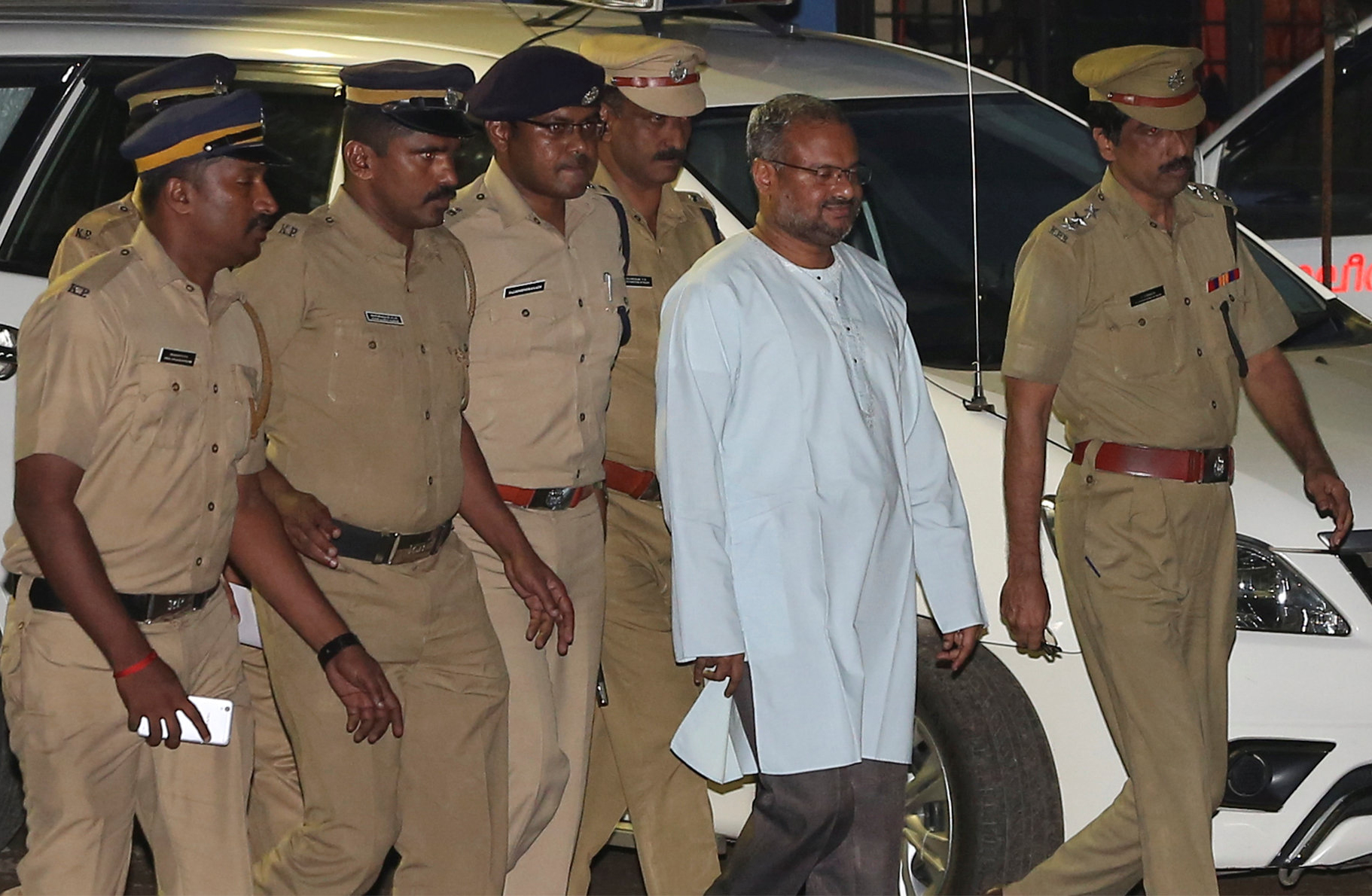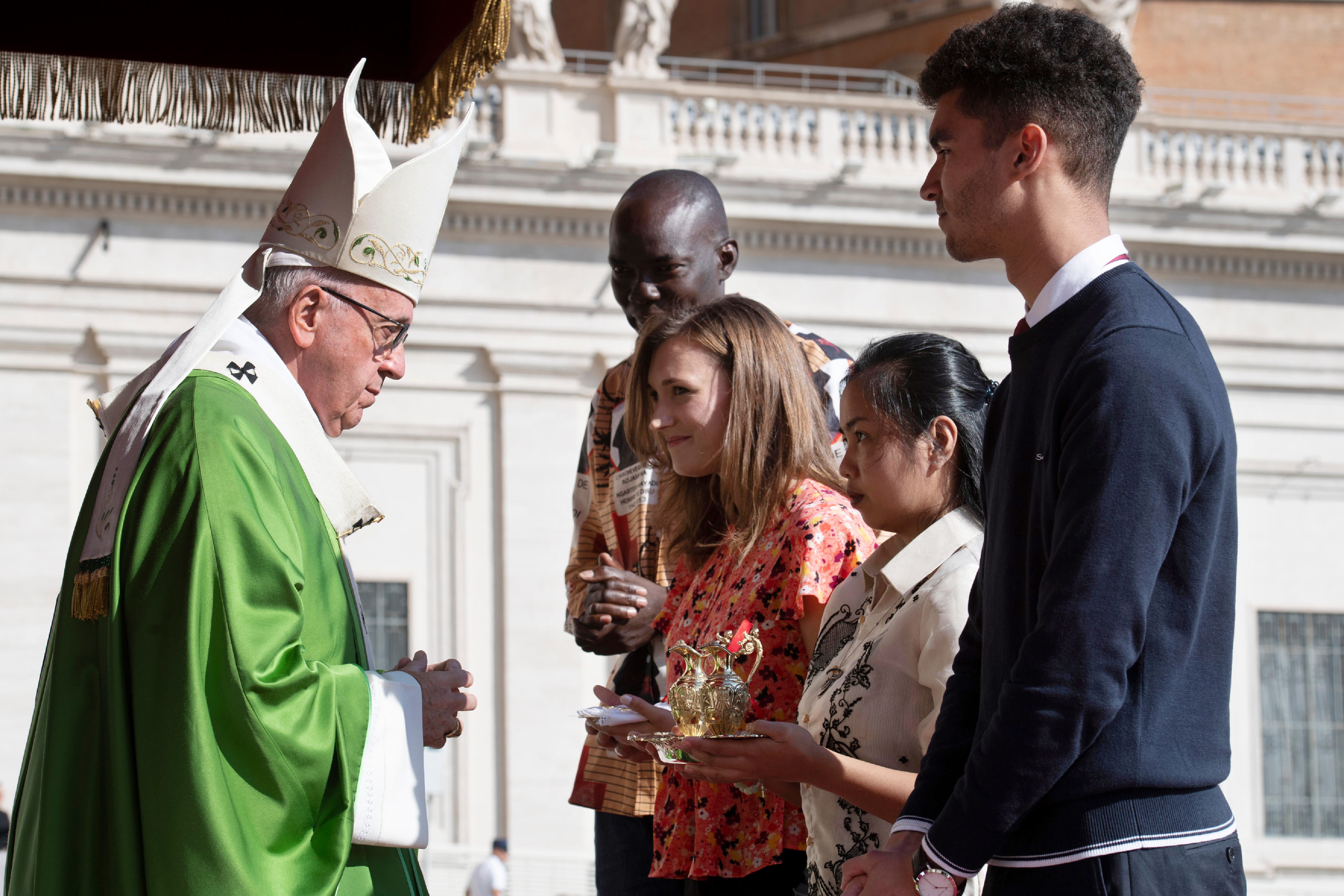The youth synod is adopting a “self-critical” tone where any “wishful thinking” has been replaced with realism about the Church’s mission to young people, according to the Cardinal Archbishop of Westminster.
“It’s not as if the reality of the world in which we live has been put to one side and here we are having this abstract discussion about young people,” Cardinal Vincent Nichols told The Tablet during the first day of the gathering of a Synod of Bishops on young people, the faith and vocational discernment.
The early interventions started with an address on from a young woman, Briana Regina Santiago, a 27-year-old from San Antonio, Texas who is discerning a vocation to religious life. There was also an apology for abuse from the Archbishop of Sydney, Anthony Fisher. Cardinal Nichols said such interventions show that “somehow, despite all these difficulties, the capacity of young people to understand their faith, and to grasp it, and the capacity of the Church still to offer that, are there.”
These discussions, he explained, had been taking place with a “tone of realism” and “self-critical reflection” while emphasising the synod was not taking place in "a bubble".
The cardinal, 72, said that revelations of clerical sexual abuse revealed over recent months, had “focussed the mind of the Church” and "made us much more keen" not to be satisfied with wishful thinking and words.
“It’s unquestionably good for the Church to come face to face with its own past, with its own mistakes. And to come face to face with the damage that’s been done, and what the victims carry.”
He continued: “Its a shock of realism, the shock of reality, and the one thing the gospel and the message of Jesus are not afraid of, is reality. Often debates in the synod can become abstract and idealistic, and wishful. But this is much more realistic."
Cardinal Nichols was appointed by Pope Francis to attend the synod meeting and was involved with its preparations as a member of the synod council. He rejected the argument from some quarters in the Church that, in light of abuse scandals, the synod on young people should be cancelled.
“The Church has to continue its life and its mission and the challenges that surround us are good for us,” he said. “There is no doubt that the impact of the disclosures of the nature of the impact and the extent of the abuse of young people, and the mishandling of things by bishops is already having a big influence [on the synod].”
He pointed to the Pope’s recent remarks that both the Church and society have a “new conscience” over abuse and that historic reports of abuse be “looked at with hermeneutic of the time period in which it took place, not with a hermeneutic of today”.
The cardinal said a “history line” should be kept in mind when it comes to abuse, citing a case in 1978 when a priest in the Archdiocese of Birmingham was convicted of five counts of child sexual abuse by a British court but whose sentence was a £280 fine.
He added that the Church in England and Wales, which has recently announced a review of all its safeguarding procedures, had a “fresh resolve” to listen to victims and during a recent homily in Poland, he described the voice of victims had to be listened to as the “voice of Christ, crying out to us in the wilderness”.
On the synod structure, Cardinal Nichols explained that a different one was now in place for the deliberations. Rather than listening to individual speeches over a week-long period, the assembly will break up into working groups after two days of contributions. The Pope has also called for a period of three minutes silence after every five speeches.
The cardinal made clear there was a distinction between the synod of bishops – an expression of “collegial synodality” or governance of the church by the hierarchy – and the “synodality” in the Church which involves everyone.
There have been calls for more lay involvement in the synod of bishops and as the event got underway a group Catholics staged a protest calling for women to be allowed to vote during the gathering. While there are 32 women, and 36 people aged 18-29 attending the synod as advisers, the voting is only done by full members – the vast majority of whom are bishops and a handful of priests. There are, however, two religious brothers who've been granted full member status despite not being ordained.
“What we are talking about in collegial synodality is specific to the bishop," Cardinal Nichols said. "There is a broader use of the word synodality which means ‘walking together’, so the whole Church walking together, but the synodality of the synod of bishops is to do with collegiality,” he explained.
“Sometimes, we rush a bit to forget distinctiveness, and forget the distinctiveness of the role of a bishop, the call of a layperson the distinctiveness which shapes the difference between male and female. When you forget the distinctiveness then I’m not sure you get a problem of how to get the equality of dignity right."
The role of women in the Church was a "real challenge" but "minimising or obliterating distinctiveness is not a good route to the solution”.
One of the questions being examined is a new approach to instructing people in the Catholic faith which the cardinal said would “imitate St Thomas Aquinas a bit more” and “look to fashioning a catechetical approach which starts with the questions that young people have in their minds”.
He said that traditional “pathways” that have given young people “continuity and stability” are breaking up into very “individualistic tracks” and this could be helped by overcoming intergenerational differences.



 Loading ...
Loading ...